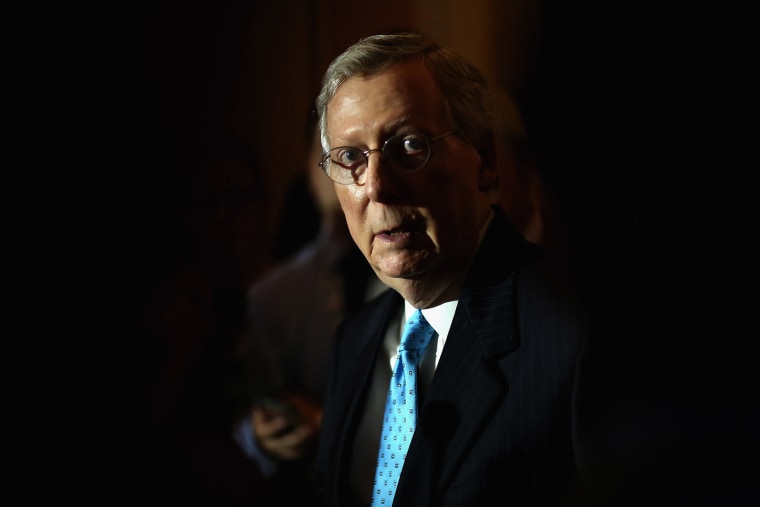The latest national Fox News poll gauged public attitudes on a variety of prominent political figures, and it's worth noting who finished last.
Donald Trump: 45% favorable, 51% unfavorableNancy Pelosi: 39% favorable, 50% unfavorableAlexandria Ocasio-Cortez: 34% favorable, 41% unfavorableIlhan Omar: 26% favorable, 37% unfavorableMitch McConnell: 25% favorable, 47% unfavorable
To a very real extent, conducting national polling on the popularity of first-term congresswomen, seven months into their careers on Capitol Hill, seems a little odd. That said, the president has invested considerable energy into attacking Reps. Ocasio-Cortez and Omar in recent weeks, desperately trying to convince the public that they and their allies are anti-American communists who support terrorism.
And yet, they both have higher favorability ratings than Senate Majority Leader Mitch McConnell.
In recent years, the conventional wisdom in Republican circles has been that House Speaker Nancy Pelosi's public standing is so poor, it's effectively toxic. According to a recent book from Cliff Sims, a former aide in Trump's White House, the president told then-House Speaker Paul Ryan (R-Wis.) a couple of years ago, in reference to Pelosi, "Have you seen her? She's a disaster. Every time she opens her mouth another Republican gets elected."
With this in mind, GOP candidates and campaigns obsessively try to tie Democrats -- even in races that have literally nothing to do with the U.S. House -- to the San Francisco congresswoman.
In the Fox News poll, Pelosi may not be winning any popularity contests, but her favorability rating did reach a new high.
All of which raises the prospect of a new political dynamic.
To be sure, I don't imagine McConnell cares in the slightest about poll results like these. Kentucky hasn't elected a Democratic senator in a generation, and McConnell has won re-election before despite his unpopularity.
But of greater interest is what his woeful public standing means at the national level -- or more to the point, whether and to what extent Democrats can put his unpopularity to good use.
The Washington Post published a report a few weeks ago that stood out for me:
Democrats are increasingly focused on making Senate Majority Leader Mitch McConnell a political villain as they attempt to win back control of the Senate in next year's election and galvanize the party's liberal base. [...]The latest critiques reflect a growing movement within Democratic ranks to make the 2020 election cycle not just a referendum on Trump, but also a purging of McConnell and entrenched Republicans.
Time will tell just how much effort Dems invest into making McConnell an electoral bogeyman, but let's not forget that when Maine's Sara Gideon (D) launched her campaign last month against Sen. Susan Collins (R), the challenger's kickoff video took care to tie the incumbent Republican senator to Mitch McConnell.
Don't be surprised if voters in other states start seeing similar messages soon.
